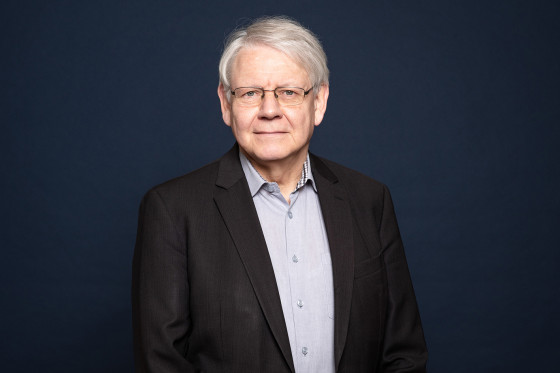
‘Science diplomacy should contribute to peace’
Professor Götz Neuneck from the University of Hamburg is a physicist and peace researcher. He was awarded the Bundesverdienstkreuz (Order of Merit of the Federal Republic of Germany), among other honours, in recognition of his decades of commitment to nuclear disarmament and arms control. He spoke with Christina Hoppenbrock about responsibility in science and the role of science diplomacy 100 years after the birth of quantum mechanics.

In 1946 Werner Heisenberg pointed out that ‘science has a great influence on the lives of peoples, prosperity and political power’. From this comes a responsibility for one's own knowledge and a duty to educate. This is the basis of science diplomacy: scientists are internationally networked and can talk to each other in confidence.
Especially when official channels are restricted, science can help rebuild trust, discuss global challenges and develop concepts for avoiding potential danger. Science diplomacy should contribute to peace, international understanding and the survival of humanity. This must also include new disruptive areas of technology, such as artificial intelligence, quantum physics and space technologies, in which physicists are involved. They will certainly also be used for military purposes.
Eighty years after the catastrophe of Hiroshima and Nagasaki, the nuclear powers are once again arming themselves ...
In the Mainau Declaration of 2024, 30 Nobel laureates warned that it is likely that ‘this terrible weapon will be used accidentally or deliberately’. India and Pakistan – both nuclear powers – are to some extent at war with each other. The problem with North Korea remains unresolved.
The nuclear threat is also a relevant issue in the Middle East ...
In Iran, attempts were made to end the country's nuclear programme through bombing. This is more likely to strengthen the forces that want to build nuclear weapons as a deterrent. This cannot end well in the long run.
Are young physicists aware of their responsibility?
My generation was confronted with a dangerous arms race in the East-West conflict in the 1970s that brought the world to the brink of nuclear catastrophe several times. We discussed the resulting consequences for science and developed alternatives. Today's generation has, broadly speaking, been brought up to believe that everything is regulated by law and politics. But that is not the case. Nevertheless, there are physicists who are prepared to take responsibility ...
... for example, working with larger organisations, such as the Association of German Scientists and ‘Pugwash’, of which you are one of the leading figures. How important are these networks?
The international ‘Pugwash Conferences on Science and World Affairs’ were established by renowned scientists during the Cold War in 1957. Their purpose was to warn of the dangers of weapons of mass destruction, assess their consequences and find peaceful means for blocs and states to resolve their conflicts. Over a long period of time, confidential meetings succeeded in fostering dialogue across borders and between conflicting parties. This led to numerous disarmament and arms control agreements and the establishment of a network of scientists. ‘Pugwash’ was awarded the Nobel Peace Prize in 1995 for its work. The Association of German Scientists brings together scholars from all disciplines who take their responsibility for the consequences of research and technological development seriously and contribute their diverse expertise to the social debate on peace, climate, biodiversity and economics. Early-career researchers who share these concerns are welcome to join.
This article is from the University newspaper wissen|leben No. 5, 16 July 2025.
Save the date:
Prof Dr Götz Neuneck will speak on 15 November at 4pm at the closing event of the Quantum Year at the Halle Münsterland. Title of the lecture: ‘Science Diplomacy and the Work of Physicists for Peace and Disarmament: The Pugwash Conferences on Science and World Affairs’
